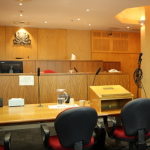The Law on Attempts to Commit Offences in New South Wales

Stonehouse is a new series on streaming service Amazon Prime, which tells the story of disgraced British minister John Stonehouse, his alleged espionage activities and attempt to fake his own death.
The show mixes fact and fiction, but here’s a rundown of the actual case and its application to the legal doctrine of attempt in Australia.
A strange case
John Stonehouse was a British politician, serving as Postmaster General with ambitions to become Prime Minister.
There are many salacious details about Stonehouse’s life, including his affair with his secretary, Sheila Buckley, and accusations made by a high-profile Tory MP that he was a spy for Czechoslovakia.
Most relevant for our purposes was Stonehouse’s many failed and fraudulent business dealings, for which incurring a tremendous amount debt whilst fuelling a habit for prescription drugs.
On 20 November 1974, as a result of his troubles, Stonehouse faked his own death, leaving his clothes on a Miami beach to make it looks like he either drowned or died by suicide. The plan worked, with an obituary published memorialising his life.
Prior to the ruse, Stonehouse took out life insurance policies with five different companies to the value of £125,000, naming his wife as a beneficiary.
Stonehouse forged his passport using the identity of a dead constituent and fled to Australia, beginning a new life in Melbourne. So confident was Stonehouse in his scheme that he flew both his wife and his mistress down under to continue his philandering.
However, just a month after faking his own death he was soon caught by police and extradited back to the UK.
Stonehouse continued to be an MP whilst on bail, even attending meetings with constituents. At trial, he represented himself, dragging out the process for 68 days.
This was all ultimately in vain, as Stonehouse was found guilty of various counts of theft, fraud, and deception in August 1976 and was sentenced to seven years in prison, serving three.
With his reputation is tatters, Stonehouse (actually) died of a heart attack in 1988.
What is an attempt?
The legal relevance of Stonehouse’s case is in regard to the doctrine of “attempt”.
Although Stonehouse fraudulently took out life insurance policies in order to benefit his wife, technically the fraud had not been completed as his wife had not completed the paperwork as beneficiary and he was rather quickly found to be alive.
As nobody lost money, does this mean fraud didn’t occur? Not exactly.
What is the law when it comes to attempting to commit a criminal offence?
The doctrine of “attempt” relates to legal liability that arises from trying to commit an offence, in circumstances where not all of the acts which constitute the crime were fulfilled.
In New South Wales, section 344A of the Crimes Act 1900 provides as follows:
(1) Subject to this Act, any person who attempts to commit any offence for which a penalty is provided under this Act shall be liable to that penalty.
(2) Where a person is convicted of an attempt to commit an offence and the offence concerned is a serious indictable offence the person shall be deemed to have been convicted of a serious indictable offence.
And section 162 of the Criminal Procedure Act 1986 makes clear that a jury that is not satisfied a defendant committed an offence can instead find them guilty of an attempt to commit the offence.
Case-law on attempt
A definition of an attempt was provided by Murphy J in Britten v Alpogut:
[A] criminal attempt is committed if it is proven that the accused had at all material times the guilty intent to commit a recognised crime and it is proven that at the same time he [or she] did an act or acts (which in appropriate circumstances would include omissions) which are seen to be sufficiently proximate to the commission of the said crime and not seen to be merely preparatory to it.
The mental element (or “guilty mind”) for an attempt is an intention to commit the crime.
Courts have developed a number of tests to determine whether an act is an “attempt” or is “merely preparatory”.
In the 19th century case of R v Eagleton, the court stated that actions will be more that preparatory if there is only one “last act” for the commission of the offence to occur. In that case, the accused supplied underweight bread to a local Poor Law authority, but was discovered before he was paid. The Court held that there had been an attempt to obtain money by false pretences.
In the early 20th century case of R v Baker, the court stated that when a person’s conduct, in itself, shows that the person unequivocally and without reasonable doubt, actually intends to carry out a crime they have committed an attempt. In that case a man had made a number of sexual advances towards a 16 year old boy and was convicted of attempted buggery.
The case of Stonehouse helped provide another test for determining an attempt.
The “substantial steps” test
After being found guilty at trial, Stonehouse appealed the verdict on the basis that his actions were too remote from the commission of the offence of obtaining property by deception to constitute an attempt.
In the resulting House of Lords decision, R v Stonehouse, the court found that an attempt had been made because Stonehouse actions were sufficiently proximate to the offence as he had made substantial distance towards the commission of the offence. This is often referred to as the “substantial steps” test.
Lord Diplock noted that:
[T]he accused by November 20, 1974 had done all the physical acts lying in his power that were needed to enable Mrs Stonehouse to obtain the policy moneys if all had gone as intended. There was nothing left for him to do thereafter except to avoid detection of his real identity. That was the day on which he crossed his Rubicon and burnt his boats.
Because of Stonehouse, courts in Australia will often need to consider whether a defendant’s actions demonstrated that they had passed the point of no return in their actions towards the commission of a crime.
Applying this doctrine means steps that are immediately connected to the crime will be considered substantial for an attempt, even if not technically the ‘last act’ before the crime is committed.






